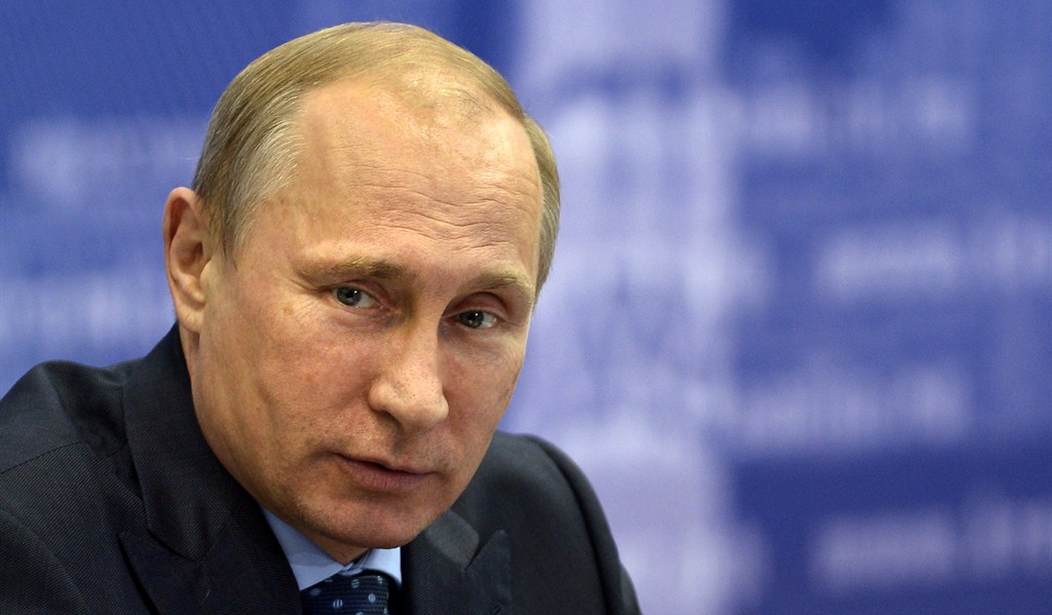When president Obama announced last week that he would be imposing of a new round of sanctions on Russia, he made sure to stress that the package was designed to inflict “maximum” damage on Russia, “while limiting any spillover effects on American companies.” Left unmentioned: the fact that, earlier that same day, officials from the European Union called to inform our State Dept. that they wouldn’t be able to follow suit.
If the administration wanted to go forward, they said, it would need to do so unilaterally. Less than a week before, a State Dept. official testified before the Senate that sanctions “could only be effective” if they were done on a multilateral basis. Absent that, the administration official predicted, European firms might just “backfill” the work that U.S. companies would be forced to leave behind.
If the success of unilateral sanctions is uncertain, and military intervention is off the table, what other options does America have available to influence Russian behavior and help bring an end to the escalating violence in the region? We can start digging in to Russia’s significant share of the global natural gas market.
Unfortunately, despite overwhelming bipartisan support in Congress, nearly two dozen applications to export natural gas remain pending before the Department of Energy – trapped in the bowels of the bureaucracy. In addition to the enormous benefits the U.S. economy would see from expanded natural gas exports, it would also signal to the global marketplace that the U.S. is a reliable supplier, now and into the future. A report from Deloitte released last year found that even moderate levels of U.S. natural gas exports could result in a wealth transfer of up to $4 billion from Russia to European consumers through reduced contract prices and market share.
In failing to follow the law and in making the rules up as it goes, the Obama administration has essentially delayed the development of projects that would create – in the words of DOE’s own third party study – “net economic benefits,” encourage greater investment into the U.S. bolstering our manufacturing industry, significantly lower global carbon emissions and, last but not least, send a clear signal that the U.S. is willing to assist its allies in-need with an affordable and reliable fuel source.
Recommended
So there’s an example of a good thing we can do to really hit Russia where it hurts – all while buoying U.S. businesses and the American economy in the process. Russia is essentially a petrol state – much like Iran and Libya – with over half of the government’s spending derived from oil and natural gas revenue. Specifically, Russia is one of the largest natural gas producers in the world, second only to the United States. Eroding Russia’s natural gas export market could be one of the most effective ways to squeeze Putin.
But instead of focusing on the good things, which, in this case, also happen to be the “easy” things, this administration continues to veer down the wrong paths, often without the left hand knowing what the right hand is up to.
The lack of coordination across the various segments of the administration is becoming a problem. Right now, as the White House continues to search for a way forward on Russia, the administration’s own Securities and Exchange Commission (SEC) is actively debating whether it ought to impose sweeping new foreign payment disclosure rules on U.S.-listed oil and gas firms that state-owned giants like Gazprom wouldn’t need to follow.
As the editorial board of the Wall Street Journal wrote, “Some Senators who dislike fossil fuels—such as Maryland's Ben Cardin —are still hoping the SEC will turn the screws harder on American companies. These folks should have to explain how undermining U.S. competitiveness, and handing an advantage to the likes of Mr. Putin, is in anybody's interest.” Thankfully, SEC’s attempt to do just that last year was rejected by a federal court. But the agency is back at it again, and you can bet the folks in Moscow are paying very close attention to what it decides.
No one is saying the administration has a ton of great options available to it when it comes to dealing with an actor like Russia. But, among the options it does have at its disposal, it’s obvious that some of those are better than others. Is it too much to ask for the administration to start focusing on those? And not the ones that end up harming us more than the country we’re supposed to be targeting?

























Join the conversation as a VIP Member